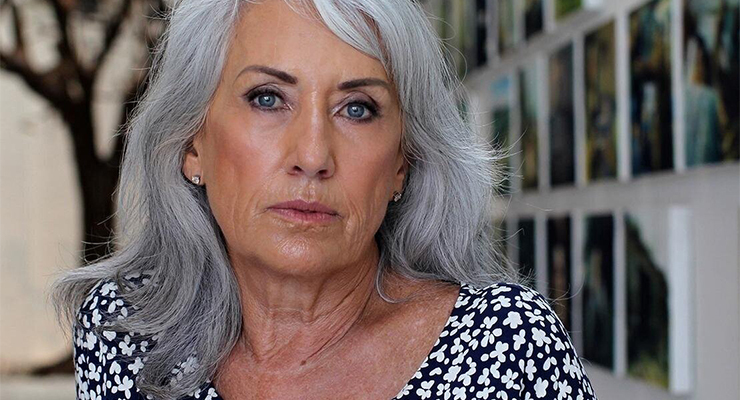
Billionaire philanthropist Judith Neilson has no intention of closing her eponymous $100 million journalism and ideas institute despite reports that she believes money flowing into journalism from Facebook and Google has placed the industry on a sounder financial footing.
The Judith Neilson Institute for Journalism and Ideas has been rocked by mass board resignations which, insiders say, were in protest against plans to remove its executive director, Mark Ryan, a former adviser to Paul Keating.
Former NSW chief justice James Spigelman, journalist Paul Kelly from The Australian, Free TV CEO Bridget Fair and CEO of the Peter MacCallum Cancer Foundation Kate Torney all resigned last week. None has elaborated on their decision.
In reporting that JNI was in a “destructive spiral”, The Sydney Morning Herald hinted that Neilson had cooled on supporting journalism. It reported that people “familiar with Neilson’s thinking said she believed the sector was now in a much better financial position thanks to media bargaining laws”.
Judith Neilson’s family office chief executive officer Simon Freeman, who remains on the board, said Neilson intended to keep the grant-giving organisation alive but planned to change its focus.
“There is no intention to close the institute,” he told Crikey. “It will continue to support quality journalism although there may be some changes in direction and emphasis.”
The change in direction would involve focusing more on those who access journalism rather than journalists, and on social awareness journalism, he said.
Neilson committed $100 million to create the institute in 2018, funding investigative journalism projects and international assignments. Two years later, the media bargaining code effectively pumped millions of dollars into the news media from the social media giants. (Private Media, the publisher of Crikey, receives funding from both Google and Facebook.)
An inside source alleged the resignations came after Neilson tried to oust Ryan, who was also consultant to the Lowy family.
“There was a request from the family office to let [Ryan] go,” an anonymous JNI staff member told Crikey. “The board was against that and has been very supportive [of him].”
The Sydney Morning Herald reported Ryan had engaged lawyers to negotiate the terms of his exit. Freeman and private banker Edward Jewell-Tait remain on the board. Leaked emails revealed tensions among the board and international advisory council, with advisory council member Bruce Shapiro, an American journalist, writing the institute was in a “destructive spiral”.
Tensions emerged after an awards project — described as an Australian version of the Nobel Peace Prize — was abandoned at the ninth hour, the source said. Staff had been working on the project for over a year only for it to be spiked by Nielson. The source said it’s believed Neilson, who had previously had a hands-off approach, will be taking on a bigger role. Neilson is currently abroad and was not available for comment.
Neilson provided $20.65 million in donations across 2020 and 2021, although just $5.89 million has been spent on grants. In 2021 the institute had $7.7 million in expenses — $2.6 million was spent on staffing costs.
Director of communications and corporate affairs David Skapinker told Crikey the institute’s funding priorities “operated under the purview of an independent board, and a finance committee” which “routinely reviewed and confirmed these priorities, ensuring they are in line with the institute’s written strategy” and endorsed by the patron, board and international advisory council.
It’s not the first time executives have resigned after questioning the institute’s direction. Founding senior executive officer Prue Clarke relocated from New York to Melbourne for the role but left after just 18 months following a disagreement with leadership over the direction of the institute.
“The Judith Neilson Institute should be the start of a movement by enlightened philanthropists to support the quality, impactful journalism that Australian democracy needs until it can find a business model to support it,” she told Crikey.
“The best philanthropic support for journalism is transparent with a clear strategy for impact.”








It’s probably appropriate for this article to include mention of the fact that Crikey has in the past been the recipient of funding from the Judith Neilson Institute.
What am I missing here? Some self-important knobs have a hissy fit about the donor imposing some conditions on her donations and that is a ‘crisis’.
Judging by the articles published here in the past under its banner, a cessation would be no loss.
As a Pacific person now living in Australia, I have valued the Pacific news network in the Guardian which JNI has sponsored.
There is no point in adding more journalism to Australia that is just more Neoliberal push.
Judith Nielson may be on to something desperately needed, journalism with a business model that represents competiton to the Neoliberals, that calls out their strategies and produces an alternative that has more life and vigor.
It’s a reminder of how much of a bullsh*t, contrived, arbitrary, deceitful and counterfeit epistemology this weird literary mode called ‘Journalism’ really is. A rich narcissist with a ton of settlement loot – hubby made a bucket playing with numbers on a screen – gets a bit bored in her privileged little cocoon and pays wordy ambitious wannabes to write ‘stuff’ that the. allows her to feel all democratically and morally lofty. Anoint it ‘journalism’…and suddenly it’s something lofty and true and ‘vital’ to democracy, etc, etc..
We used to call this cr*p Vanity Publishing.
Wee bit harsh and way too absolutist, even by my instinctively meeja-bashing standards. Withdrawn, with apologies to AS, JNI and Judith Neilson.